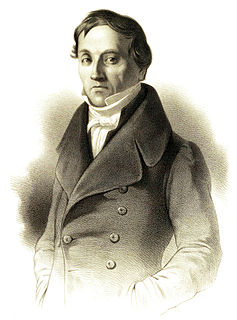A Quote by Rod Serling
In almost everything I've written there is a thread of this: man's seemingly palpable need to dislike someone other than himself.
Related Quotes
Bhutto represents everything the fundamentalists hate - a powerful, highly-educated woman operating in a man's world, seemingly unafraid to voice her independent views and, indeed, seemingly unafraid of anything, including the very real possibility that one day someone might succeed in killing her because of who she is.
Man can will nothing unless he has first understood that he must count on no one but himself; that he is alone, abandoned on earth in the midst of his infinite responsibilities, without help, with no other aim than the one he sets himself, with no other destiny than the one he forges for himself on this earth.
What a wee little part of a person's life are his acts and his words! His real life is led in his head, and is known to none but himself. All day long, the mill of his brain is grinding, and his thoughts, not those of other things, are his history. These are his life, and they are not written. Everyday would make a whole book of 80,000 words -- 365 books a year. Biographies are but the clothes and buttons of the man -- the biography of the man himself cannot be written.
Know thyself! This is the source of all wisdom, said the great thinkers of the past, and the sentence was written in golden letters on the temple of the gods. To know himself, Linnæus declared to be the essential indisputable distinction of man above all other creatures. I know, indeed, in study nothing more worthy of free and thoughtful man than the study of himself. For if we look for the purpose of our existence, we cannot possibly find it outside ourselves. We are here for our own sake.
I never felt like a happy-go-lucky ingenue to begin with. And parts are written better when you're older. When you're young, you're written to be an ingenue, and you're written to be a quality. You're actually not written to be a person, you're written for your youth to inspire someone else, usually a man. So I find it just much more liberating.




































